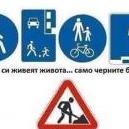Продължава румънският историографски апетит към Южна Добруджа
-
Последна активност
-
- 2 мнения
- 69 прегледa
-
- 15 мнения
- 657 прегледa
-
- 1346 мнения
- 136779 прегледa
-
- 3 мнения
- 91 прегледa
-
- 2 мнения
- 107 прегледa
-
-
Последно разглеждащи 0 Потребители
- No registered users viewing this page.



Препръчано мнение